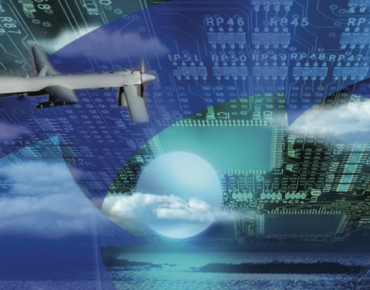AI Panel Seeks to Define Algorithmic Warfare

Source: U.S. Army
A U.S. commission exploring the implications of AI for national and economic security has been issuing a steady stream of quarterly reports to Congress on how to apply the dual-use technology.
Among the issues being confronted by the National Security Commission on AI is algorithmic warfare, and whether machines might someday replace “boots on the ground” in conventional warfare. The panel’s latest report to Congress addressed that possibility, along with the ethical and national security implications.
In its most recent set of recommendations released in July, the AI panel “focused on moving from high-level principles to providing agencies with more concrete guidance on developing and fielding AI technologies in a responsible and ethical manner,” said commission member Eric Horvitz.
The panel also sought to define algorithmic warfare, deeming “information advantage and algorithmic superiority” as determinants of victory in a conventional war.
Concluding that the U.S. must plan for algorithmic war, the panel characterized future AI-enabled warfare as a “conflict that will pit algorithms versus algorithms in a contest dominated more by the speed and accuracy of knowledge and action than by traditional military factors.”
Asked whether the commission believes conventional conflicts will eventually be overtaken by algorithmic warfare, one panel member made the case that AI development is tied to economic prosperity as well as national security while serving as a tactical adjunct to conventional warfighting.
“Algorithmic warfare within the context of national security would have a profound effect on all elements of our national power,” said commissioner Katharina McFarland, a former assistant secretary of defense for acquisition in the Obama administration.
The rise of algorithmic warfare has profound implications for the military competition between the U.S., China and Russia, McFarland added. “It will also impact our economic power, our diplomatic power and how we leverage information for traditional ‘soft’ power.”
Hence, McFarland stressed “we must get AI right for the sake of our national security and economic prosperity.”
For military applications, the commission is defining algorithmic warfare as a tactical tool that augments soldiers on the battlefield—one that surpasses the ability of human cognition to quickly analyze and reach decisions.
“Conventional armed conflict will not disappear,” McFarland said, but AI will be embedded in weapon systems and military operations.
From a strategic standpoint, U.S. planners worry that China and Russian may choose to deploy AI-based systems with greater degrees of autonomy as a way to undermine U.S. military superiority. If so, “AI in that vein would enter into a new era algorithmic warfare,” McFarland added.
The AI commission also is stressing “speed of relevance” in the developing and deploying AI technologies for national defense. McFarland said one goal is providing the military with an “overmatch,” or force multiplier, capability.
“AI “is not a plane, train or automobile, it’s an enabler, it’s everywhere,” McFarland said, adding that how AI is prioritized is one of the commission’s fundamental tasks.
An podcast interview with McFarland is here.
Related
George Leopold has written about science and technology for more than 30 years, focusing on electronics and aerospace technology. He previously served as executive editor of Electronic Engineering Times. Leopold is the author of "Calculated Risk: The Supersonic Life and Times of Gus Grissom" (Purdue University Press, 2016).











